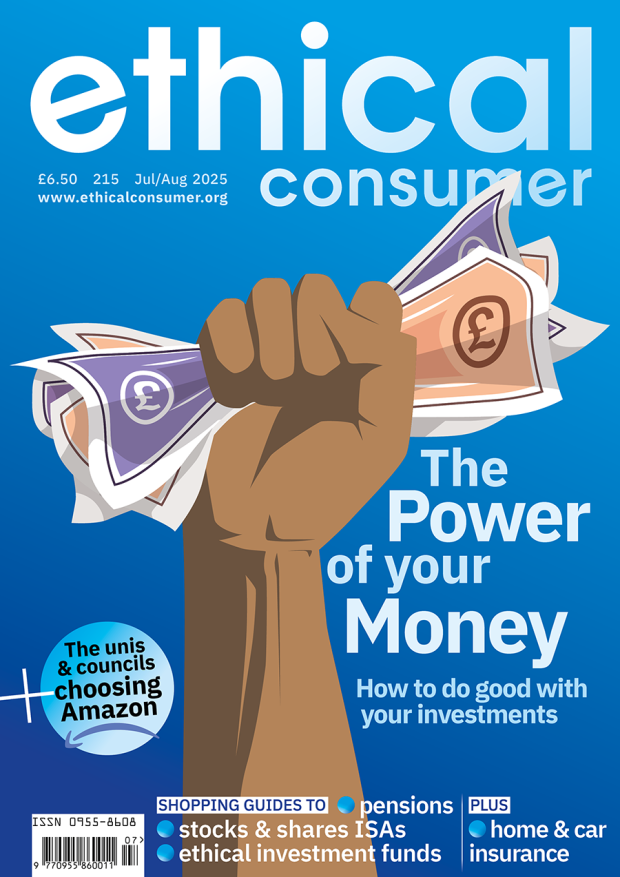Find out about ethical Stocks & Shares ISAs
Ethical stocks and shares investments are likely to include companies which are taking positive social and environmental actions. Ethical brands will generally:
- see workers' rights as important
- treat everyone in the supply chain fairly
- treat customers well
- be taking useful actions for the climate and environment
- promote diversity, equality and inclusion
Less ethical stocks and shares funds will feature companies in sectors which are seen as problematic or unethical such as alcohol, arms, factory farming, fossil fuels, gambling, pornography and tobacco.
In this guide we investigate how ethical 28 Stocks & Shares ISA different brands (funds or platforms) are. We look at their investment policies, climate action, how transparent they are in what they invest in, the tax conduct of the brands, along with other ethical considerations.
We also explain what an ethical Stocks & Shares ISA is, how well they perform, the risks associated with them, and how to get ethical financial advice.
Whether you're new to investing in stocks and shares, or a long-term investor, this guide will help you make ethical decisions about where your money goes.
The ethical ratings of the 28 brands in this guide range from 0 to 100.
We cover how you can transfer your Stocks & Shares ISA if you want to move away from one of the low scoring brands. And with 2/3rds of the brands in this guide scoring below 20, there should be an appropriate option for you.
What is an ethical Stocks & Shares ISA?
An ISA, or Individual Savings Account, is an account which allows you to save or invest without ever paying any tax on the interest or dividends that you may receive. The amount of money you can save each tax year is capped, currently at £20,000.
There are different types of ISA, the simplest being the cash ISA, which is like an ordinary savings account, paying you interest on the cash you deposit. (We have a separate guide to Cash ISAs).
The £20,000 allowance is a combined limit across all the ISAs you hold. You can either invest all your allowance in a Stocks & Shares ISA, or you can split it across different types of ISAs, including Cash ISAs, innovative finance ISAs, and lifetime ISAs.
It looks likely that the UK government will reduce the threshold for Cash ISAs to £4,000 in autumn 2025 but keep the Stocks & Shares threshold at £20,000, to encourage more people to invest in companies.
A Stocks & Shares ISA is a bit more complicated than a Cash ISA. The money you pay in can be invested in investment funds (shares or bonds from various companies combined into one investment), bonds (a loan to a company or a government) or shares in individual companies.
Stocks & Shares ISAs may have the potential for higher returns than Cash ISAs. But as Stocks & Shares ISAs are based on the stock market there’s always a risk that the amount you invest could go down as well as up, so you risk losing some of your money. Stocks & Shares ISAs are also generally more suitable if you can lock your money in for more than five years.
Why is it called “Stocks and Shares”?
The words “stocks” and “shares” are often used interchangeably but there is a subtle difference:
- Stocks refers to the broader concept of ownership in companies.
- Shares refers to the individual units of ownership within a specific company.
For example, you might say you own stocks to mean you have investments in the stock market and you might say you own shares in Apple.




